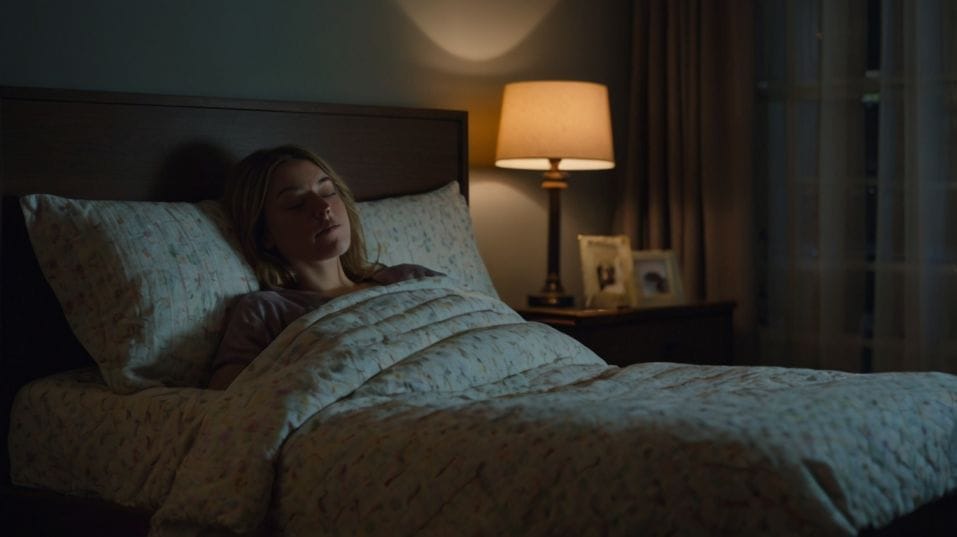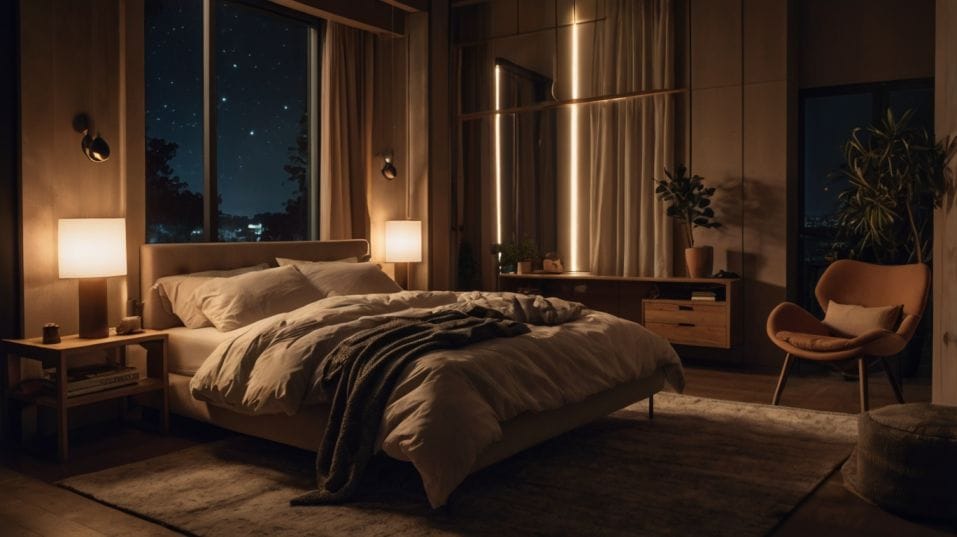Why Your Partner’s Sleep Habits Are Ruining Yours
Sharing a bed? Your partner’s habits may be quietly ruining your sleep. Learn simple, science-backed fixes to protect your rest tonight.

Is your partner unknowingly hijacking your sleep? You’ve cut caffeine, stuck to a routine, maybe even tracked your sleep—but you're still waking up drained.
The missing piece might be right beside you. When you share a bed, you're also sharing light, noise, and movement—and it’s quietly wrecking your rest.
Before you assume it’s stress or bad luck, learn how your partner’s habits are affecting your brain and body each night—and how to fix it without a fight.
You're Not Just Sharing a Bed—You're Sharing a Sleep Pattern
Sleep isn’t an isolated event. It’s a synchronized system—especially when you share a bed. Studies on “sleep synchrony” in couples show that partners influence each other’s sleep cycles, whether they mean to or not.
Your brain reacts to their movements, their sounds, even the ambient light from their side of the bed. When your partner stirs, even slightly, your brain nudges toward wakefulness.
When they stay up late, the light, sound, and physical disruptions affect your circadian rhythm—even if you pretend you can ignore it.

And when one person is constantly breaking the flow, the other starts losing the deep, restorative stages of sleep.
That means more shallow sleep, less REM, and shorter periods of slow-wave sleep—the phase your body uses to repair muscle, regulate hormones, and store memories.
It’s like showing up to a recovery session and only stretching for two minutes before being yanked back to work.
The Snorer, the Scroller, and the Schedule Breaker
Let’s get specific. Most sleep-disrupting partners fall into one (or more) of three categories.
The Snorer
Snoring isn’t just noise. It’s an intermittent, unpredictable sound spike—exactly the kind of thing your brain hates when it's trying to stay asleep.
Studies have shown snoring from a partner can reduce the non-snorer’s sleep efficiency by up to 20%. Even low-level snoring can fragment your sleep enough to kill its benefits.
You don’t need to banish your partner to the couch. Try a few upgrades first:
- White noise machines or noise-masking earbuds designed for sleep (not music).
- Anti-snore pillows or sleep position trainers that reduce airway obstruction.
- If snoring is intense or paired with choking/gasping sounds, encourage a sleep study. Sleep apnea is common—and fixable.
The Scroller
The partner who insists on falling asleep to TikToks, Reddit threads, or late-night news is more than a digital distraction.
Blue light exposure—even indirectly—suppresses melatonin production, the hormone your brain needs to shift into sleep mode. One glowing screen can delay both your sleep onset and quality.
Make this easy to fix, not a lecture:
- Introduce a mutual phone cutoff time 30–60 minutes before bed.
- Replace scrolling with a shared wind-down routine—gentle music, reading a print book, or stretching.
- If they need a screen for sleep (hello, true crime podcast people), use night mode, dim brightness, and consider blue-light-blocking glasses.
The Schedule Breaker
This one’s tougher. Maybe you're a 10 p.m. lights-out person, and they’re crawling into bed at 1 a.m.
That time mismatch causes repeated micro-disruptions—light turning on, the mattress shifting, maybe even a second bedtime snack in the kitchen that wakes you up.
You don’t need to become identical sleepers, but you do need boundaries:
- Use blackout curtains and motion-activated low lighting in shared spaces to prevent harsh wake-ups.
- Use separate bedding (yes, even on the same bed) to prevent pulling and shifting.
- If all else fails, designate a "quiet zone window" where any late-night movement happens as stealthily as possible.
Fix the Sleep Without Starting a Fight
Here’s the trap most couples fall into: treating sleep complaints like personal attacks. Don’t go there. Sleep is a shared asset. When one person improves, the other benefits too—better moods, better mornings, better connection.
Instead of saying, “You keep waking me up,” try, “I want both of us to sleep better—let’s experiment with a few changes this week.” Keep it neutral, keep it about the result, and suggest it as a team upgrade, not an ultimatum.
Start with habits that feel low-lift but high-impact:
- Go to bed at the same time a few nights a week.
- Set a calming pre-bed cue—soft lighting, a diffuser, or gentle music.
- Do a quick check-in: “Anything keeping you up tonight?” This encourages emotional decompression before it turns into 3 a.m. anxiety.
What Happens When You Both Start Sleeping Better
Here’s what gets better when you and your partner both sleep well:
- You wake up with more energy and less tension.
- Your immune system functions better.
- Your workouts feel easier and more effective.
- Your mood stabilizes, making fights less likely and sex more appealing.
- You actually look forward to bedtime—because it doesn’t feel like a battleground.
Optimizing sleep isn’t just about your health. It’s about preserving the best parts of your relationship. When sleep stops being a source of friction, everything else gets smoother.
Final Thoughts
You can’t change your partner, but you can change the system you're sleeping in. Their habits may be hurting your rest, but that’s not the end of the story.
With a little awareness and a few simple adjustments, you can protect your own sleep without sacrificing connection.
Don’t wait. Choose one change today—a new wind-down routine, a noise solution, or a conversation about synced schedules.
The sooner you shift from silent resentment to shared strategy, the faster you both start sleeping like it matters. Because it does.Start tonight. Own your space. Fix your rest. Wake up better.




